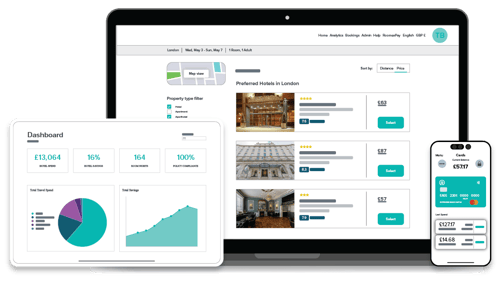Business travel isn’t always about continental breakfasts, expensing meals or wining and dining prospective clients. To make sure everything is fair, it’s a two-way relationship between employees and employees. Employers splash the cash while employees win deals or get important work done onsite.
And while employers recognise the importance of duty of care, it’s often a task that can fall on the intermediary – the travel booker. Which is no problem when everything is going well but what if an employee misses a flight or there’s a weather disaster or a health concern?
The truth is that while nearly three-quarters of companies have a risk management process in place when it comes to business travel, one-fifth of employees don’t feel it’s all that effective, according to the Global Business Travel Association. Then there’s the other 25 percent which have no formal strategy at all for managing people’s safety while they’re on the road.
While every individual workforce comes with its own unique needs and risks, organisations can use three key principles to promote safe business travel. Mastering them takes a little coordination and a lot of help from a business hotel booking platform.
1. Actually enforce the travel policy
We don’t have to tell you how important travel policies are, no matter the size of the business. They serve in part as the manifesto that aligns travel with budget-friendly spending and employee-friendly accommodation, but they also play key roles in proving and carrying out duty of care.
Simply put, duty of care is the responsibility organisations have when it comes to keeping employees safe on the road. It’s easier said than done when some travellers book their own accommodation or others are insistent about hotels they like personally.
Getting people to follow the policy is just as critical as creating it. If not, you run the risk that a staff member books accommodation that puts his or her safety in danger one way or another.
Make your job easier with a business hotel booking platform that can standardise your business’ bookings, while incorporating the travel policy, invoicing, spending limits, and any preferred hotels. It ensures that teams get accommodation in a safe area – without running the risk of overbooking – and companies get to save money in the process.
2. Know where your staff are at all times
It’s entirely likely that at any given time, your team will have a handful of people visiting clients, at meetings, or working on jobs around the company. Knowing that Susan is visiting business X in city Y doesn’t actually tell the organisation where Susan is or how she’s doing.
When the workforce books its own travel and expenses it back, companies lose the ability to monitor where those employees are. If something goes wrong, the company may be held liable if a court finds it didn’t exercise due diligence in protecting Susan.
By consolidating business hotel bookings to a unified platform, travel bookers have a detailed map of where every team member is staying across the world. Updated in real-time, organisations will always have a handle on where people are staying and can gain a better idea of the right accommodation for their workforce, wherever they are.
3. Use multiple channels to communicate
Last but not least, travel bookers and employee managers should be able to get in contact with remote workers in multiple ways. The company at large should be available through email, text and workforce collaboration apps to its off-site teams.
This comes in especially handy when hotel rooms are overbooked. Given that team members may not find out they don’t have a room until the end of their day – when most people have clocked out and gone home – having a policy in place that directs their issues to key points of contacts can keep an unfortunate situation from escalating.
Likewise, the company should have access to important medical information and emergency contact details at all times. Let’s say Susan is out for dinner with a client and she has an allergic reaction. The hospital might try to get in touch with your company – so do you have the necessary details on hand? And what happens if you don’t?
Keeping the travelling workforce safe isn’t rocket science. By leaning on powerful digital tools and using sound logic, organisations can ensure they’re fulfilling their role when it comes to duty of care.

April 29, 2019

